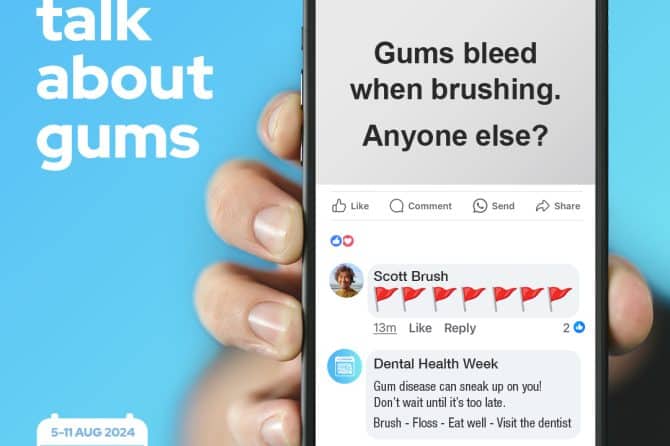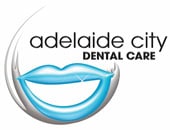
Dental Health Week is here again! The theme this year is #letstalkaboutgums.
So, lets talk about gums! Your gums should be firm, stippled, pink for Caucasian/Asian heritage, brown/pink for African heritage and should come to a point between your teeth. You should be able to floss between the front side and rear side of the gum point (papilla) and your tooth easily. You should have no bleeding when you do this and the pocket you are flossing will be about 3 – 4mm deep. The gum height between your teeth is related to the bone height. The gum height is usually 2 -3mm higher than the bone height.
When your gums are unhealthy and inflamed, they will bleed, they might have pus and they will look red and swollen with no stippling. There is, of course, a range between gingivitis (gum inflammation) to periodontitis (gum disease). Gingivitis is relatively easy to treat. We need to remove the hard plaque under the gums with a good, thorough cleaning of your teeth and with good flossing and brushing your gums will recover. Periodontitis is further on in the range where the damage to the underlying bone results in loss of bone, loss of gum height, deeper pocketing and then onto mobile teeth. Often, we will refer you to a specialist periodontist for surgical cleaning of the teeth to slow down the inflammation process and the loss of teeth.
So for this Dental Health Week to prevent gingivitis and periodontitis occurring you can do the following:-
- Floss or use interproximal brushes or a water/air flosser every day
- Brush twice a day
- Visit your hygienist and dentist at requested intervals. (Prebook so these intervals don’t get extended.)
- Use the antibacterial products suggested by your dentist or hygienist for your gums.
- Eat well
Some medical conditions and medications can affect your gums as well. For those of us lucky to be women our hormones can affect our gums too. So, we often have more severe bleeding gums with menstruation and menopause. People with diabetes are at more risk of gum disease than the general population and often have bleeding gums.
It is important if you have bleeding gums that you continue to floss and brush. You might need to floss a bit deeper or use the interproximal brushes to help clean the triangle between your teeth. Your dental hygienist will show you how. Often that extra brushing and flossing will do the job but if it continues then please contact us. Regular professional cleaning is also necessary as we all are not perfect flossers! Your dentist/hygienist will suggest the interval between professional cleaning depending on your individual situation.
See you in the clinic! The Adelaide City Dental Care Team. PS: check out our socials (Facebook, LinkedIn, Instagram) for top tips for teeth, mouth and gums and dental family snaps! Maybe even the latest video on YouTube.
Leave a reply